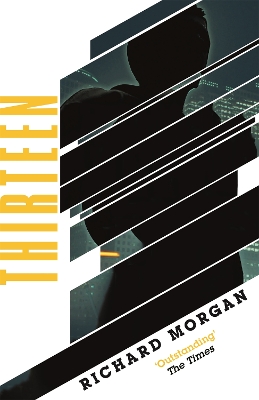Reviewed by clq on
The story revolves around a man who is different, seen by some as a useful weapon, seen by most others as a monster who should be locked up or dead. This man is dragged into the case of solving a number of murders which seem to have been committed by "one of his own".
The story moves from there, and while I don't think it's the kind of story you won't be able to put down, it is certainly a book you always want to pick back up and continue reading.
The book turns out to be more than "just" a story. It goes from being story-driven to being almost purely character-driven. This works very well. Yes, the reader has become invested enough in the characters to care about them, but that's the easy part. The impressive part is that the reader has become sufficiently immersed in the world and the society around the story to appreciate situations and actions that can only be justified by, often very subtle, elements of the social politics which are part of the story.
Of course, as the title would suggest, the book also deals with a form of racism, but not in the way one might expect. Engineered genetics are a reality in this book, and this shifts the premise of the discussion to a level which I think very few people would and should feel comfortable with. Few things in this book are clear cut, and this makes both the characters and the setting feel more believable.
All in all, it is wonderfully difficult to pin down what this book is actually about. On its surface it could be seen simply as a sci-fi thriller. However, parts of the book also work well as a "what if?" philosophical discussion, using a future setting to discuss a number of complicated questions. At its best the book becomes thoughtful social commentary on a hypothetical society where a number of issues that exist today are amplified.
I took issue with a few things in this book. Quite often it comes dangerously close to being corny and overdone. Most of the time it succeeds in not crossing the line, which makes for a very entertaining and fast-paced read. However, at one point it crosses the line into corny and overdone so thoroughly and completely that it becomes silly, and just feels weird and out of place.
Overall I think this is a great book, and I'm not generally a sci-fi fan. This is a book with a story and characters that I think would hold their own in any universe. In some places it is a little rough around the edges for my taste, but I'm sure this is part of the appeal for genre fans.
Reading updates
- Started reading
- 18 April, 2014: Finished reading
- 18 April, 2014: Reviewed
